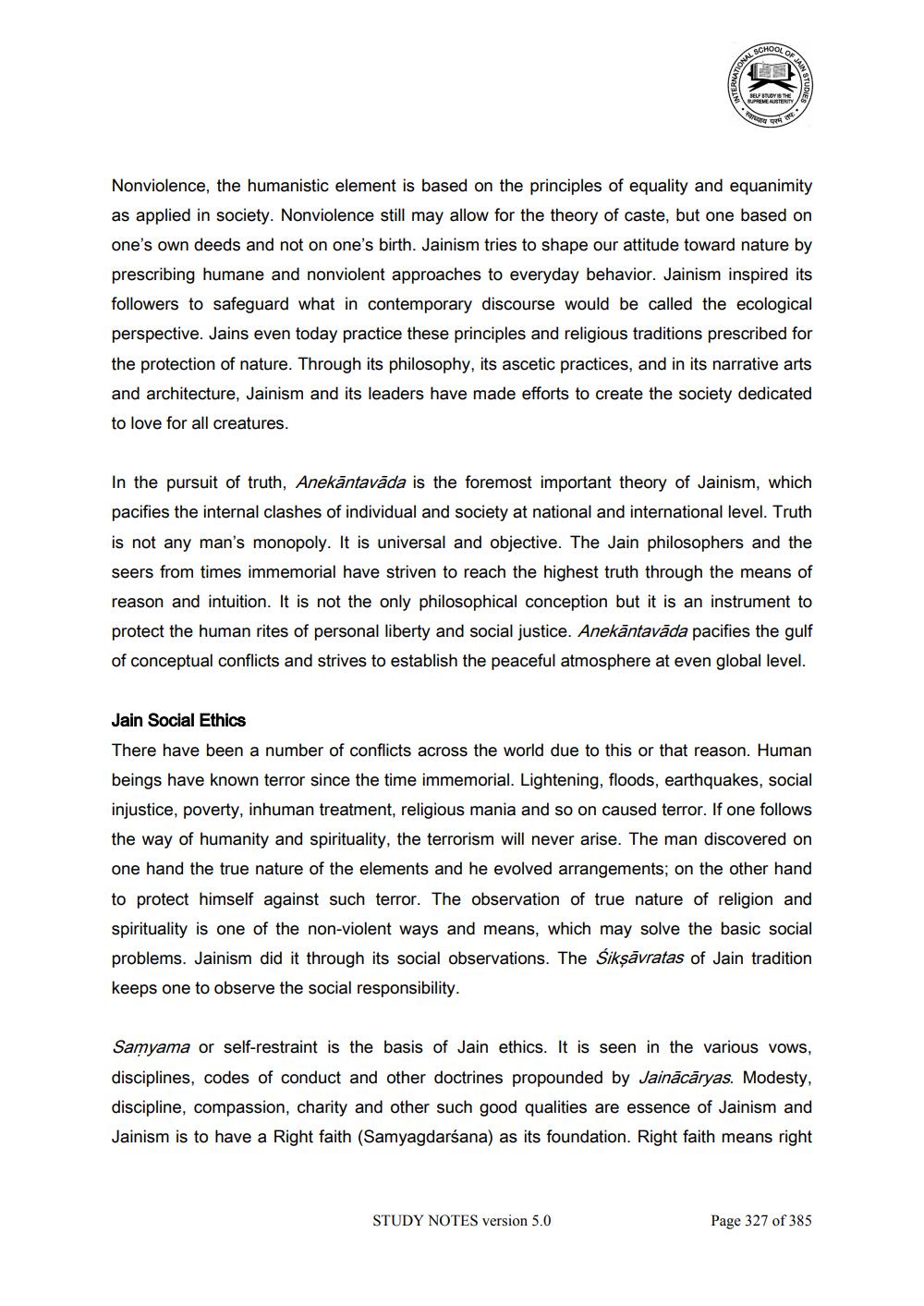________________
Nonviolence, the humanistic element is based on the principles of equality and equanimity as applied in society. Nonviolence still may allow for the theory of caste, but one based on one's own deeds and not on one's birth. Jainism tries to shape our attitude toward nature by prescribing humane and nonviolent approaches to everyday behavior. Jainism inspired its followers to safeguard what in contemporary discourse would be called the ecological perspective. Jains even today practice these principles and religious traditions prescribed for the protection of nature. Through its philosophy, its ascetic practices, and in its narrative arts and architecture, Jainism and its leaders have made efforts to create the society dedicated to love for all creatures.
In the pursuit of truth, Anekāntavāda is the foremost important theory of Jainism, which pacifies the internal clashes of individual and society at national and international level. Truth is not any man's monopoly. It is universal and objective. The Jain philosophers and the seers from times immemorial have striven to reach the highest truth through the means of reason and intuition. It is not the only philosophical conception but it is an instrument to protect the human rites of personal liberty and social justice. Anekāntavāda pacifies the gulf of conceptual conflicts and strives to establish the peaceful atmosphere at even global level.
Jain Social Ethics There have been a number of conflicts across the world due to this or that reason. Human beings have known terror since the time immemorial. Lightening, floods, earthquakes, social injustice, poverty, inhuman treatment, religious mania and so on caused terror. If one follows the way of humanity and spirituality, the terrorism will never arise. The man discovered on one hand the true nature of the elements and he evolved arrangements; on the other hand to protect himself against such terror. The observation of true nature of religion and spirituality is one of the non-violent ways and means, which may solve the basic social problems. Jainism did it through its social observations. The Śikṣāvratas of Jain tradition keeps one to observe the social responsibility.
Samyama or self-restraint is the basis of Jain ethics. It is seen in the various vows, disciplines, codes of conduct and other doctrines propounded by Jainācāryas. Modesty, discipline, compassion, charity and other such good qualities are essence of Jainism and Jainism is to have a Right faith (Samyagdarśana) as its foundation. Right faith means right
STUDY NOTES version 5.0
Page 327 of 385




